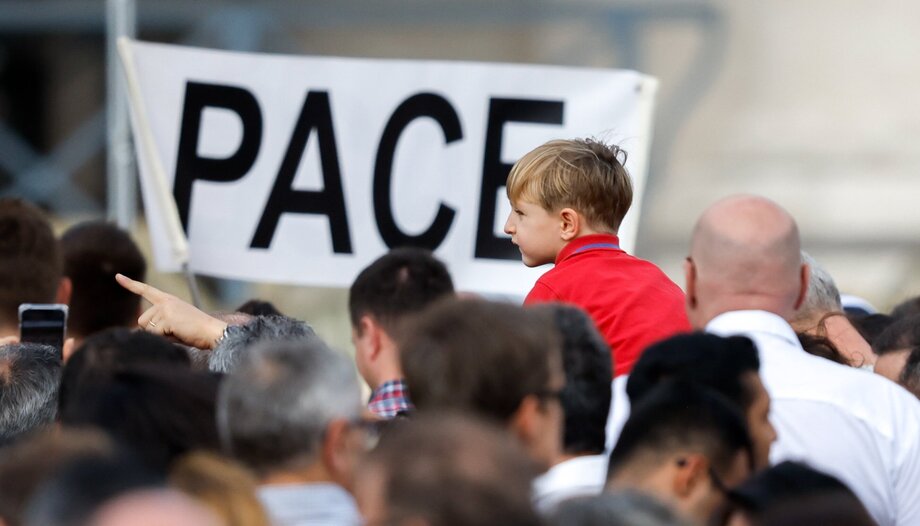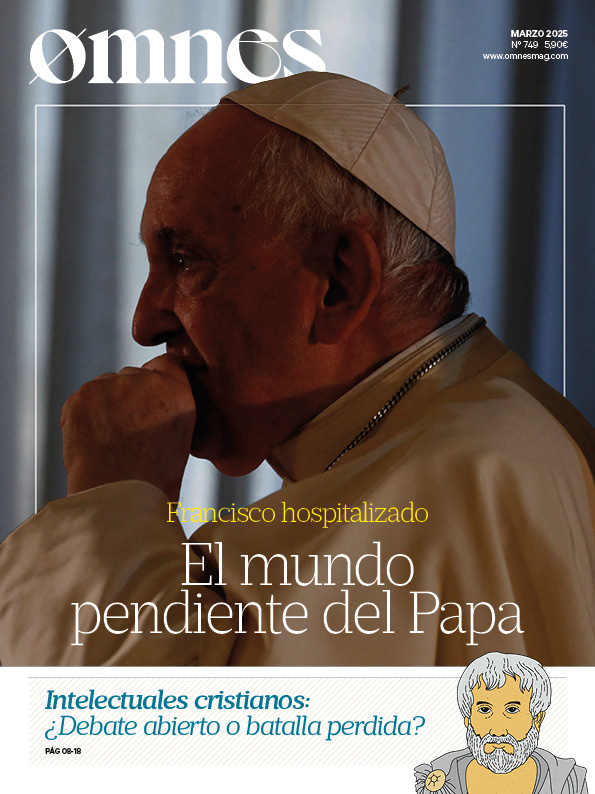The aim is to avoid the much-feared escalation, laying the groundwork for a stable and lasting cease-fire between Israel and Hamas. While the war in the Middle East seems to be in its most dramatic phase (the Gaza Strip is a bloody battlefield), international talks in which the Holy See is involved continue.
On the morning of Monday, October 30, "a telephone conversation took place between Monsignor Paul Richard Gallagher, Secretary for Relations with States and International Organizations, and Hossein Amir-Abdollahian, Minister of Foreign Affairs of the Islamic Republic of Iran, at the latter's request". This was reported by the director of the Holy See Press Office, Matteo Bruni, in a communication to journalists in which it is specified that "in the conversation, Monsignor Gallagher expressed the serious concern of the Holy See for what is happening in Israel and Palestine, reaffirming the absolute necessity to avoid the expansion of the conflict and to reach a two-state solution for a stable and lasting peace in the Middle East".
Pope Francis therefore entrusts to his "Minister of Foreign Affairs", Monsignor Paul R. Gallagher, the task of establishing a dialogue with Tehran, the main ally of Hamas and a "deterrent" to a wider conflict in the Middle East, with the nuclear threat always on the horizon. Just a few hours before the conversation between the two prominent representatives of Vatican diplomacy and Iran, Pope Francis launched during the Angelus in St. Peter's Square a new impassioned appeal for peace in the Holy Land: "Let us continue to pray for Ukraine and also for the grave situation in Palestine and Israel and for other war-torn regions. In Gaza, in particular, space must be left to guarantee humanitarian aid and the immediate release of hostages. Let no one abandon the possibility of stopping the weapons."
Citing the words of the Vicar of the Holy Land, Father Ibrahim Faltas, the Holy Father exclaimed: "Cease fire! Stop it, brothers and sisters! War is always a defeat, always!". Pope Francis' commitment, in addition to the peace mission between Ukraine and Russia entrusted to the president of the CIS, Cardinal Zuppi, also points to mediation in the Middle East conflict: last October 22, the Pontiff called US President Joe Biden to discuss the conflict and the need to "identify paths to peace".
Four days later, on October 26, 2023, Pope Francis spoke by telephone with Turkish President Recep Tayyip Erdoğan. Bergoglio reaffirmed his sorrow over the ongoing war in the Holy Land and recalled the "position of the Holy See, advocating the two-state solution and a special status for the city of Jerusalem." The United States, Turkey and now Iran are the most important international actors (along with Russia and China) that could determine the future of the conflict between the two states. Israel and Hamas.








